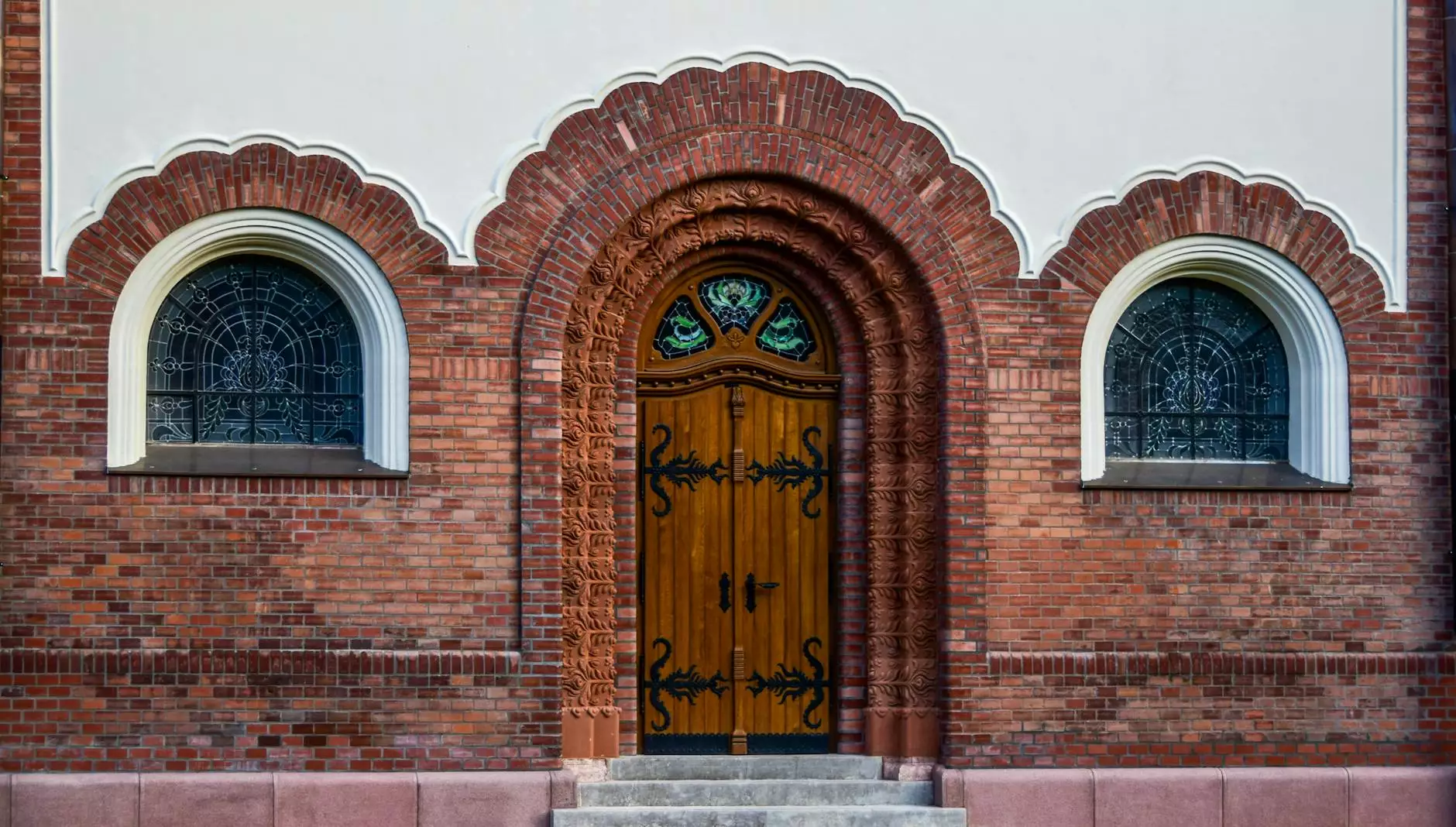The Vital Role of Synagogues and Religious Organizations in Urban Life

In today's fast-paced urban environment, the significance of places of worship such as synagogues, churches, and other religious organizations cannot be overstated. They serve not only as spiritual sanctuaries but also as crucial community hubs that foster social interaction, cultural continuity, and emotional support. This article aims to explore the many facets of these religious institutions, particularly focusing on their contributions to societal well-being, identity formation, and community cohesion.
The Spiritual Sanctuary: More Than Just a Place of Worship
At its core, a synagogue or church plays a fundamental role as a spiritual haven. But what does that really mean?
1. A Place for Worship and Reflection
The primary function of any religious organization is to provide a space where individuals can come together to worship. This communal worship experience fosters a sense of belonging and solidarity among members. Regular services allow individuals to connect not only with the divine but also with each other, reinforcing community bonds.
2. Cultural Preservation
Religious institutions act as custodians of tradition and culture. They are critical in ensuring that the values, beliefs, and customs of a given faith are passed down through generations. Through ceremonies, educational programs, and community events, synagogues and churches engage with the wider community, contributing to a rich tapestry of local culture.
Community Engagement: More Than Just Faith
Synagogues and churches often extend their influence beyond the spiritual by engaging with pressing social issues and providing essential community services.
1. Social Services and Outreach Programs
Many religious organizations run outreach programs that address issues such as poverty, hunger, and homelessness. These programs not only provide immediate assistance but also facilitate long-term change by addressing the root causes of these issues. Organizations such as food pantries, shelters, and job training programs exemplify this commitment to improving community welfare.
2. Youth and Family Programs
In addition to adult services, synagogues and churches focus on youth engagement and family support. Many institutions offer educational programs for children and teenagers, teaching them the foundational elements of their faith while also promoting values such as compassion, respect, and community service. This work is crucial for cultivating a sense of identity and belonging in younger generations.
Interfaith Initiatives: Building Bridges Across Differences
The beauty of urban life is its diversity. Religious organizations play a pivotal role in fostering understanding and cooperation among different faiths.
1. Interfaith Dialogue
Through initiatives such as interfaith discussions and community service projects, synagogues and churches create opportunities for dialogue among diverse religious groups. These interactions promote a greater understanding of different beliefs and practices, reducing prejudices and stereotypes.
2. Collaborative Community Service
Many religious organizations partner with one another to tackle community challenges. By combining resources and expertise, these collaborations often yield more impactful results, demonstrating that unity can lead to significant change.
Spiritual Growth and Personal Development
Beyond community service, synagogues and churches contribute significantly to individual spiritual growth. They provide a supportive environment where individuals can explore their beliefs and seek personal transformations.
1. Counseling and Support Groups
Religious leaders often offer counseling services to help individuals navigate life’s challenges, from personal crises to grief. These services are complemented by support groups that foster understanding and healing among participants.
2. Lifelong Learning Opportunities
Many institutions prioritize education, offering classes on theology, philosophy, and ethics. This commitment to lifelong learning encourages intellectual engagement with faith, allowing individuals to deepen their understanding of their beliefs.
Creating a Sense of Belonging
In a world where individualism often prevails, synagogues and churches provide a crucial sense of community. They offer a welcoming environment for everyone, regardless of background, fostering inclusivity and acceptance.
1. Celebrating Identity
Religious organizations often serve as a pillar for individuals seeking to express their cultural and spiritual identities. Celebrations of religious holidays, cultural festivals, and communal gatherings play a significant role in affirming a shared identity.
2. Opportunities for Volunteerism
By organizing volunteer opportunities, these institutions encourage community members to invest their time and resources for the benefit of others. This sense of shared purpose enhances community ties, creating a network of mutual support.
Harnessing Technology for Greater Reach
In the digital age, religious organizations have begun to embrace technology to extend their outreach and adapt to changing community needs.
1. Online Services and Social Media Engagement
Many synagogues and churches now offer online services, making it possible for individuals who cannot attend in person to still partake in spiritual activities. This digital presence expands accessibility, ensuring that people from all walks of life can engage with their faith.
2. Community Building through Virtual Platforms
Social media platforms provide an avenue for religious organizations to remain connected with their communities. Through sharing inspirational content, announcements, and updates, they foster continuous engagement with members, even outside traditional settings.
Conclusion: The Enduring Significance of Synagogues and Religious Organizations
As we navigate an increasingly complex world, the role of synagogues and churches remains more vital than ever. They are not merely places of worship but are also essential community pillars. By fostering social connections, providing support services, promoting interfaith dialogue, and adapting to modern advancements, these organizations significantly contribute to the fabric of urban life.
Through their unwavering commitment to community service, education, and personal development, synagogues and churches enrich lives and help cultivate a more compassionate, understanding society. Whether you are a lifelong member or are exploring these spaces for the first time, the contributions of such organizations will undoubtedly have a lasting impact on both personal and community levels.
To learn more about the vital workings of synagogues, churches, and religious organizations, visit https://zion.nyc/.









